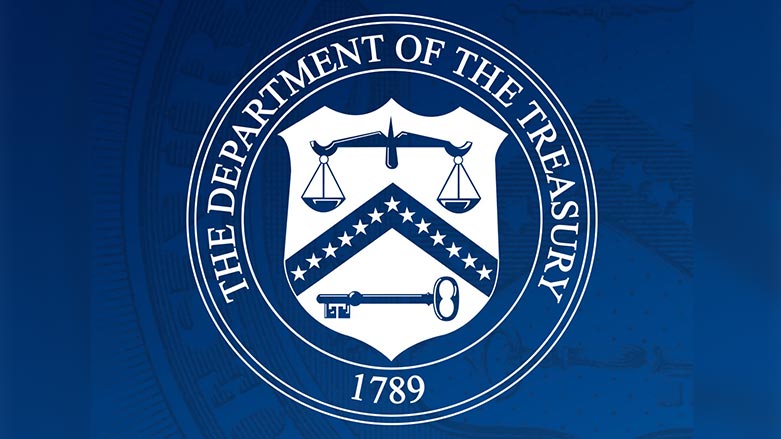U.S. Sanctions Cousins of Syrian President, Lebanese Associates for Drug Trafficking

WASHINGTON DC, United States (Kurdistan 24) – On Tuesday, the U.S. Treasury and State Department announced sanctions on six individuals, all of them Syrian or Lebanese, for their involvement in the production and trade of Captagon, a dangerous and highly addictive amphetamine.
The U.S. measure was taken in concert with Great Britain. A statement from the U.K. Foreign Office summarized the activities of regional actors that prompted the new sanctions, saying, “The Assad regime, Hizballah, and other Iranian-backed militia all facilitate the Captagon industry,” fueling “regional instability” and “a growing addiction crisis across the region.”
The new sanctions come as Russia seeks to rehabilitate Assad, its long-time ally. Moscow is working to normalize Syria’s relations with other countries, particularly those in the region. Earlier this month, Assad traveled to Moscow for a rare meeting with Russian President Vladimir Putin. The Wall Street Journal subsequently reported that Saudi Arabia and Syria were “nearing an agreement to restore diplomatic ties after negotiations mediated by Russia.”
That has yet to happen, but the news follows separate trips to Syria last month by the Egyptian and Jordanian Foreign Ministers, even as the U.S. seeks to maintain the isolation of the Assad regime, which stems from Syria’s civil war, and its harsh repression of the civilian population, including the use of chemical weapons.
New U.S. and U.K. Sanctions
The newly-sanctioned individuals include two cousins of Syrian President, Bashar al-Assad. His “family members and associates rely on the illicit drug trade to fund his regime’s violent oppression and abuse of the Syrian people,” Secretary of State Antony Blinken said in a written statement on Tuesday.
In 2021, The National, a newspaper published in Abu Dhabi, described Captagon as “the most in-demand narcotic in the Middle East.”
“The Syrian regime is closely involved in the trade,” a statement from the British Foreign Office affirmed, as it explained that some 80% of the world’s supply of Captagon was produced in Syria, estimating that trade “to be worth up to $57 billion to the Assad regime.”
Iraq and the Kurdistan Region are among the areas that have suffered from the illicit Captagon trade. Earlier this month, Iraqi authorities seized over three million Captagon pills being smuggled into the country from Syria at the al-Qaim border crossing.
Read More: Iraq seizes over 3 million Captagon pills
Last week, the Asayish in northeast Syria arrested a Hasakah drug trafficker who was in possession of 15,000 Captagon pills. By regional standards, it was not a big haul, but as Caroline Rose, Director of the News Line Institute, explained, “It shows that Captagon traffickers are trying to exploit Northeast Syria as a mode of transit for pills into Iraq.”
Read More: Asayish captures 15,000 captagon pills in northeast Syria
Sanctioned Individuals
Of the six sanctioned individuals, two are cousins of the Syrian president. One is Samer Kamal al-Assad, who “oversees Captagon production facilities in regime-controlled Latakia,” a statement from the U.S. Treasury Department said.
Samer works in coordination with the “notorious U.S.-designated Fourth Division of the Syrian Arab Army (SAA),” which is headed by Maher al-Assad, a brother of Bashar al-Assad, it added.
The Fourth Division is notorious for its heavy-handed repression of the Syrian people, while it also runs “many illicit revenue-generation schemes, which range from smuggling cigarettes and mobile phones to facilitating the production and trafficking of Captagon,” it explained.
The second Assad cousin sanctioned on Tuesday is Wassim Badi al-Assad. He “has supported the SAA in various roles, to include leading the Ba’ath Brigades militia, a paramilitary unit” under SAA command, the Treasury Department said.
“Wassim has been a key figure in the regional drug trafficking network, partnering with high-level suppliers to smuggle contraband, Captagon, and other drugs throughout the region, with tacit support of the Syrian regime,” it added.
Two other Syrian nationals were also sanctioned. They include Khalid Qaddour, a Syrian businessman and close associate of Maher al-Assad, as well as Imad Abu Zureik, who heads a militia affiliated with Syrian Military intelligence. Abu Zureik controls the Nassib border crossing with Jordan and exploits his control of that post for a host of illicit activities, including drug smuggling.
Hassan Muhammad Daqqou is one of the two Lebanese sanctioned on Tuesday. He is actually a dual Lebanese-Syrian national and has been “dubbed by media as ‘The King of Captagon,’” the Treasury Department’s statement said.
Daqqou works with Maher al-Assad and the army’s Fourth Division in drug trafficking “with cover reportedly provided by Hizballah,” it added. He is actually in jail—arrested by Lebanese authorities in 2021 for trying to send “a massive shipment of Captagon” to Saudi Arabia. However, “Hizballah affiliates have reportedly facilitated Daqqou’s ability to continue to run his businesses” while he is in prison.
Noah Zaitar is the other Lebanese national sanctioned on Tuesday. He is subject to an outstanding Lebanese arrest warrant, but he is protected by the Syrian Army’s Fourth Division and has, so far, eluded detention.
